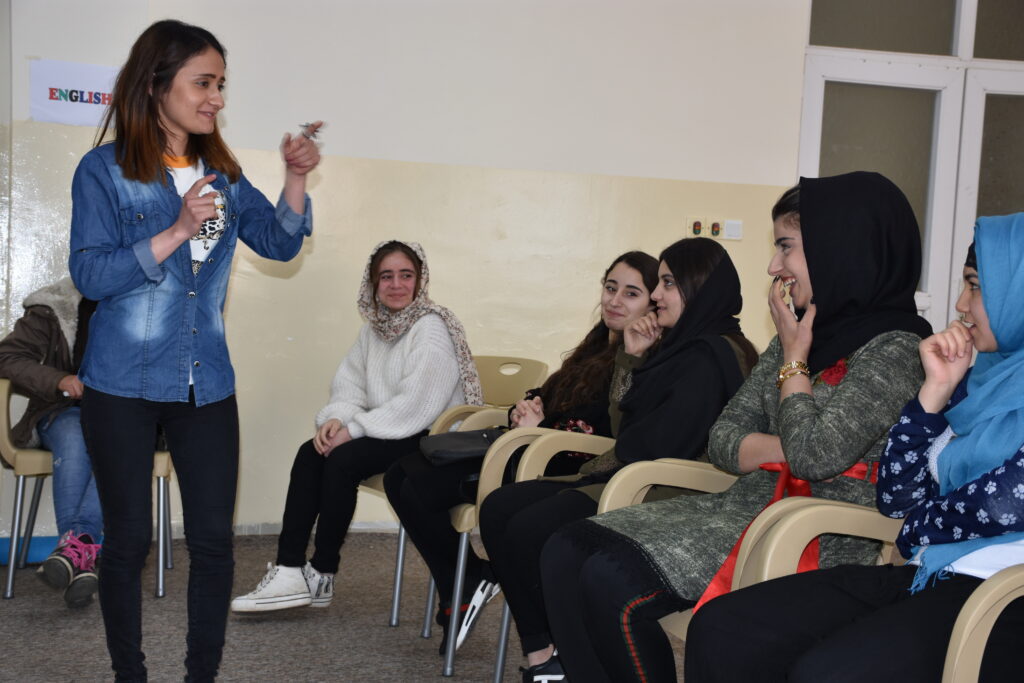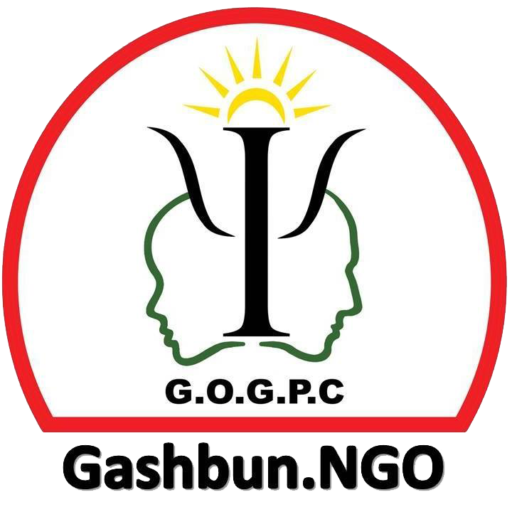
Supporting parent of children with special needs
Supporting parents of children with cerebral palsy in Duhok
In many parts of Iraq-Kurdistan region, parents of children with cerebral palsy often struggle to find information on how to support their children to improve functioning and independence. In this issue, one parent describes her experience searching for information which led her to contribute to the community.
Najeeba Ali knew something was different with her daughter when she was pregnant with Rojda, soon after she was born in Qamishlo, North-east of Syria in 2014. Her baby was born premature and found to have a brain hemorrhage three days after birth.
“I just felt my daughter was abnormal,” said Najeeba. “But when I asked the doctor, he said, ‘Oh, premature babies usually are born like this. There will be development delays. But It’s normal.’” The doctor said
In the months later, Najeeba brought her baby to some government hospitals, but found no results, then she brought the baby at her own cost to many other doctors in the hospitals of the private sector, but none offered support, guidance or a diagnosis. She searched for information but didn’t come up with anything. So, her husband was working in a laboratory in Dohuk so he initiated to search for information, he began her own research. After 11 months, he suggested to a doctor that his daughter had cerebral palsy. The doctor agreed. But he could offer no support or a plan for treatment for their daughter.
Najeeba liked this idea and tried to investigate and follow the steps of planning the treatment by her own efforts
“At that time in Dohuk, there was not much information about cerebral palsy from public hospitals. And there was no support for parents,” Najeeba said. “And because my daughter’s condition was so severe, they just said negative words.”
Building a community to support parents
With the dearth of information provided from her husband on cerebral palsy, and her many questions on her daughter’s health condition, she decided in 2016 to make a decision to search, study on this issue and participate in trainings online to learn how children with cerebral palsy and their families are supported in other areas.
“I was amazed, because there are many therapies with a new approach,” she said, adding previously, she was only aware of physical therapy, which she has now studied in the courses. “I found there were many systems to support parents – equipment, therapy, information. I learnt a lot.” Najeeba said
Realizing the lack of information and support from the health system for parents of children with cerebral palsy, she resolved to share what she had learnt with other parents. She set up the “cerebral palsy group in Domiz1 camp of Syrian refugee”. A month later, she was able to gather the parents of this community of children not only in the camps but the areas around the camp and in other camps as well. She was giving the awareness sessions to the parents at Gashbon center in Domiz1 camp and sometimes visited their homes It quickly became an active group as the community for parents. She found that she shared a bond, a similar “voice inside”, with other parents.
There are limited resources in Arabic that is why I decided to learn English, I participated in English courses at Gashbon center by English tutors and I also improved my language skills online to search for more information” she said
“I’m still supporting the parents in the refugee camps in Kurdistan online” Najeeba said through her interview with Gashbon’s social worker.
Unfortunately, she has moved from the region to Syria due to some domestic situations and now she is no longer living in the camp in Dohuk.
The efforts have become fruitful
Now, , Najeeba is leading a group of volunteers in Syria, which provides information and the support for parents of children with cerebral palsy. The group has 25 members of volunteers.
She is a spokesperson for parents on cerebral palsy, interacting regularly with the medical community. She has received an award from the Directorate of Health from local authorities of north-east of Syria for her contribution and support to the children with special needs including their parents.
“Najeeba is now leading a group of volunteers in Syria providing information, instruction and advices to the parents of children with special needs, she is also advocating for this community to get support from the government and humanitarian agencies” Gashbon’s social worker said.
Additionally, “She is now providing special education for the children with special needs who are unable to attend the school” the social worker added

